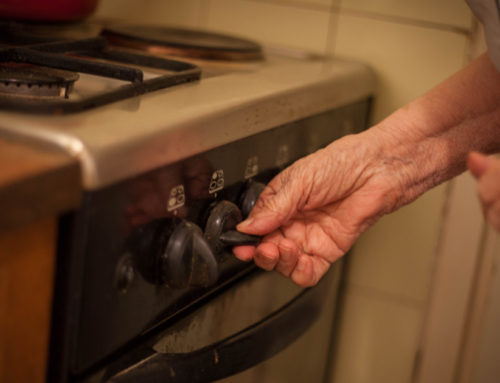An estimated 5 million Americans have Alzheimer’s disease, many of which are aged 65+. Much like cancer or Parkinson’s disease, when your aging parent is diagnosed with Alzheimer’s it’s a game-changer that presents unique caregiving challenges moving forward.
Because the symptoms of Alzheimer’s can mimic those of other diseases and commonly prescribed medications, diagnosing it isn’t easy. If you suspect that your elderly mom or dad has Alzheimer’s, here are some of the telltale signs to watch for.
What is Alzheimer’s Disease?
As the most common source of dementia, Alzheimer’s is a progressive disorder that causes brain cells to waste away and die. Over time, a person living with Alzheimer’s will experience a continuous decline in thinking, social and behavioral skills that eventually interfere with their ability to function independently.
Presently there is no known treatment that cures Alzheimer’s disease or that slows disease progression. In the advanced stages of the disease complications resulting from the loss of brain function- like malnutrition, dehydration or infection- may cause death.
Cognitive Signs of Alzheimer’s
Almost every senior has memory lapses from time-to-time. They might forget where they put the car keys or the names of acquaintances. However, the dementia associated with Alzheimer’s is more persistent and severe. Eventually it will interfere with the patient’s ability to carry out activities of daily living (ADLs) like bathing, toileting and self-feeding.
Someone with Alzheimer’s may exhibit these cognitive signs early on:
- Getting lost in familiar places
- Repeating statements and questions over and over
- Frequently misplacing possessions, or putting them in unusual places
- Forgetting important conversations, events or appointments, or not remembering them later
- Starting to forget the names of everyday household objects or family members
- Struggling to find the right words to describe objects, express thoughts or take part in conversations
As the disease progresses multitasking becomes more difficult. In the latter stages of Alzheimer’s once-routine activities like planning and cooking a meal, or bathing and dressing, become nearly impossible.
Personality and Behavioral Changes
Changes in the brain caused by Alzheimer’s can also affect moods and behaviors. Here are some signs to watch for:
- Apathy
- Social withdrawal
- Dramatic mood swings
- Depression
- Not trusting others, even close family members
- Loss of inhibitions
- Delusions and hallucinations
- Irritability and aggressive behavior
- Change in sleeping patterns
- Wandering off
Preserved Skills
Certain preserved skills are controlled by parts of the brain that are affected later as Alzheimer’s progresses. Skills like singing, listening to music, reading books, telling stories, doing crafts or reminiscing. Once those skills start to go it’s an indication that the disease symptoms have worsened.
How You Can Help
Since even treatable medical conditions or certain medications can also cause memory loss or other dementia symptoms, those need to be ruled out first. The first step is to take mom or dad to the doctor so that they can do a thorough assessment and diagnosis.
To get a definitive diagnosis the doctor may:
- Conduct tests of memory, counting, language, attention and problem solving
- Review your loved one’s overall health, diet, medical history, use of prescription and over-the-counter medications, and changes in behavior and personality
- Order standard medical tests, like urine and blood tests, to rule out other possible causes
- Refer your parent to a specialist for brain scans and additional testing
It’s also a good idea to keep a daily journal so that you can record what you’ve observed and then share the information with their doctor.
Compassionate In-Home Alzheimer’s Care for Busy Families
Finding time to care for an aging loved one with Alzheimer’s can be challenging. When you need a hand contact Help at Home. Our staff of highly experienced health professionals stands ready to serve as an extended family in your senior’s home so they can continue living safely and comfortably right where they want to be. At Help at Home, we take meticulous measures to match your loved one with a qualified caregiver who is compatible with their unique personality and specific needs.
Over the years we’ve perfected a caregiving formula built upon client satisfaction, personal attention and compassion for the clients and families that we serve. In addition to Alzheimer’s and dementia care, our carefully screened professionals can provide in-home services like personal care, transitional care, respite care, geriatric care, companion care and even end-of-life care. To learn more about Help at Home now, or to contact us about a senior in Virginia, Maryland or Washington, DC, metro area today, please visit: www.helpathomecare.com!



